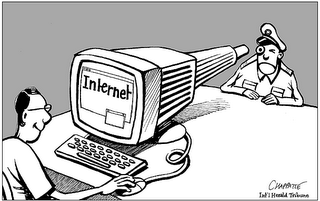-
Censor them with Content

Imagine the following scenario: You are a policy maker for a country with questionable leadership, and an even more questionable economy. A new technology called the Internet has emerged which might answer some of your economic concerns, but you are concerned about the unintended consequences of adopting a technology that might undermine your county’s sense of morality, not to mention nationalism.This problem is not new, you saw the same threats emerged out of other media sources once they were able to syndicate content from across the world. But with newspaper, television and radio, the number of broadcasters was small enough that the appropriateness of content could be regulated. With the Internet, however, every media consumer is also a producer.
With a population of less than 5 million, these were the concerns of the Singaporean government when it implemented a complicated array of Internet censorship practices, but these concerns could equally be applied to the United States as well. The anxiety of nation-states about the border/culture/economically-agnostic nature of information on the Internet, and the desire to control information must always compete with the thick ideological armor with which we protect our digital free speech. The design of our Internet infrastructure is so imbued with the ideology of free speech that unrestricted access to information seems preordained for anyone who chooses to plug-in.
So how do you censor the individual? You launch MySpace.
Category: The Gnovis Blog
